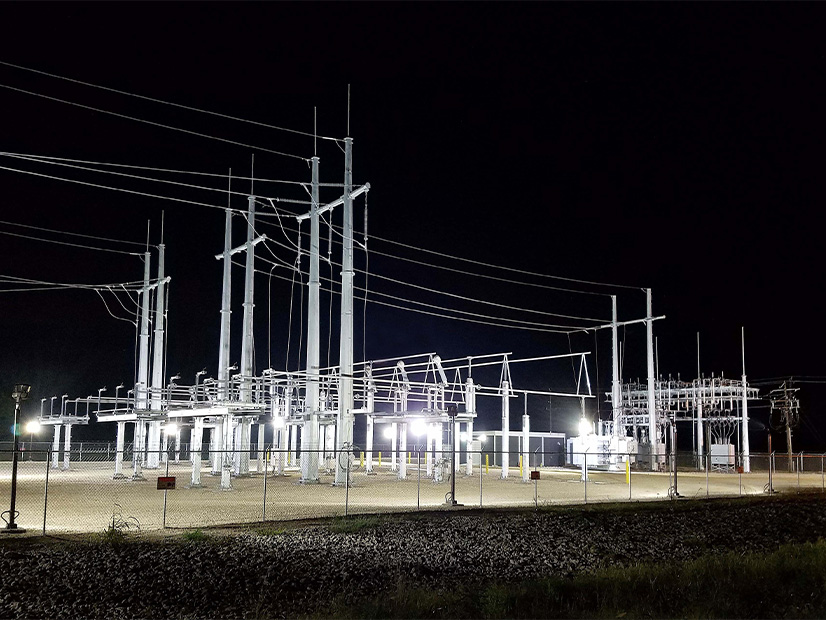Clean energy and public consumer advocates questioned Wednesday whether MISO planners are sufficiently exploring alternatives to the projects transmission owners submit to staff.
Piqued by a batch of expedited substation projects in MISO South for the 2022 planning cycle, they asked for proof that the grid operator is identifying or studying alternative projects. They expressed hope during a Planning Advisory Committee that staff find larger regional projects that could satisfy several needs rather than blindly accepting TOs’ project plans. (See MISO’s 2022 Tx Planning Cycle Exceeds $4B.)
Several stakeholders said TOs don’t make enough project specifications public to allow meaningfully proposed project alternatives. “More detail needs to be given to stakeholders ahead of time,” Southern Renewable Energy Association Executive Director Simon Mahan said.
He suggested that MISO planners might also lack the capabilities to study project alternatives.
“As a stakeholder, I don’t know what to do,” Mahan said. “I think you all are doing the best you can … but $70 million is a lot to rush through. I don’t know if MISO has the tools to future-proof the system. I’m just worried how many more times this is going to happen in the future. I’m just really worried about this.”
This summer, Cleco applied to include a 230-kV and an 138-kV substation, each costing $15 million, for expedited treatment. Entergy requested approval to install two additional 230-kV breakers into an existing substation near the Louisiana-Texas border; to construct a 230-kV substation; and a $32.6 million, 115-kV substation in northern Mississippi. The utilities said the projects were necessary because of load growth in their territories.
MISO recommended all the projects for late inclusion in its 2022 Transmission Expansion Plan.
Clean Grid Alliance’s Natalie McIntire said her organization has raised the issue with MISO several times. She said she believes that Order 1000 obligates staff to offer and analyze project alternatives.
“Whenever we ask about this, MISO assures us it studies alternatives. But we don’t in the stakeholder process see alternatives. … This is an issue of costs for consumers,” McIntire said.
She said it seems that MISO “does a lot of hand waving” in only reassuring stakeholders that they study alternatives, but don’t back that up with evidence. The RTO is best positioned to examine alternatives with its “top-down” view of the system, McIntire said.
“We continue to make these comments, and I feel like it’s never quite resolved,” she said.
Jeanna Furnish, MISO’s director of expansion planning, said “there are situations in which” MISO comes up with alternative projects, with those alternatives sometimes presented in subregional planning meetings.
“So does every single project get an alternative? That’s probably not true,” she said.
Furnish said MISO will “think through” whether it has the tools to adequately study alternatives and how it might be more transparent in discussing the alternatives.
She also said grid operators stand to be affected by FERC’s notice of proposed rulemaking on more comprehensive transmission planning. Furnish appeared before the commission’s technical conference on transmission planning earlier in the month. She said then it isn’t feasible for grid operators to consider alternatives to every TO-proposed project. (See States Urge More Transparency on Tx Planning, Independent Monitors.)
Cleco Energy’s Chris Thibodeaux said the utility’s expedited projects will bring jobs to Louisiana and are requested by industrial customers who need transmission-level service.
“I’m not sure how the Environmental Sector really has a say in that,” he said.
Jeff Cook, with the Office of Consumer Advocate, said a public consideration of alternatives can help stakeholders more easily accept expensive projects.
LS Power’s Brenda Prokop added that an evaluation of alternatives could help determine whether the RTO could rely on larger projects to take care of various smaller needs.
Mahan agreed that MISO could help members figure out whether larger projects would save money and give stakeholders more confidence in the planning process.




